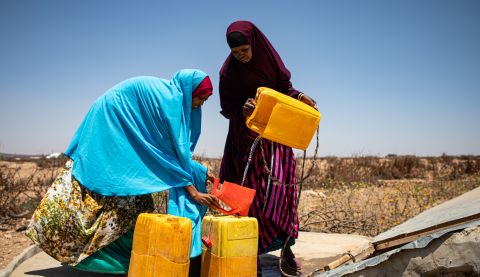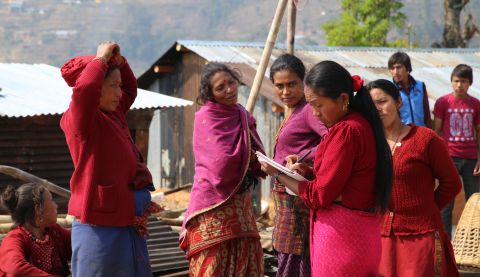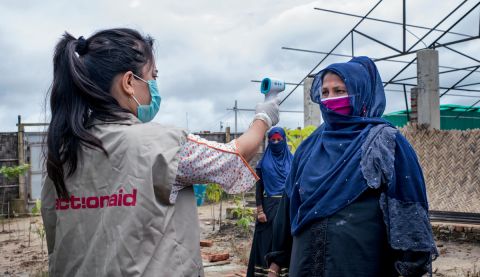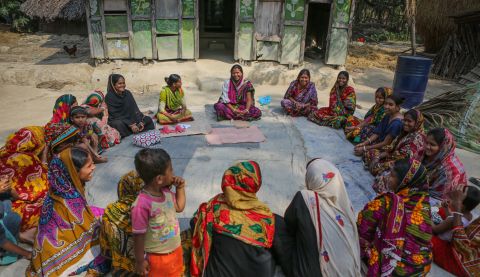Women’s leadership in humanitarian crises
Learn about ActionAid's approach promoting women's leadership during humanitarian crises, and why female humanitarian leaders are critical in emergencies.
Read moreTagged with:

Malati, a women’s rights coordinator for ActionAid Nepal, addresses local women in Panga after the 2015 earthquakes in Nepal. Photo: Srikanth Kolari/ActionAid
Posted 27 March 2017
Learn about ActionAid's approach promoting women's leadership during humanitarian crises, and why female humanitarian leaders are critical in emergencies.
Read more
Posted 7 February 2017
ActionAid's Emergencies Action Fund is there to make sure we are always ready to respond to emergencies. It is reserved solely for our work in emergencies. Donate now to our Emergencies Action Fund.
Read more
Thanks to ActionAid's women-friendly spaces, women are taking a leading role in planning how to rebuild their communities. Photo: ,Jo Harrison/ActionAid
Posted in Blog on 5 January 2017
Over the last week the criticism of international aid found a new target - the practice of giving money directly to some of the poorest and most vulnerable people, otherwise known as direct cash transfers. The allegation made was that this amounted to setting up UK-funded cashpoints for the poor. Aid money should never be misspent or wasted, but the criticisms of direct cash transfers - giving money directly to people in need - misunderstand the issue. Here's why.
Read more
Posted 21 September 2016
ActionAid responds immediately in an emergency or humanitarian crisis. Find out more about humanitarian crises and our responses.
Read more
A women-led emergency response group in Bangladesh. Photo: Turjoy Chowdhury/ActionAid
Posted 19 April 2016
Learn about some of our most effective local initiatives and ways of working that we use around the world to empower women and girls to achieve lasting change.
Read more